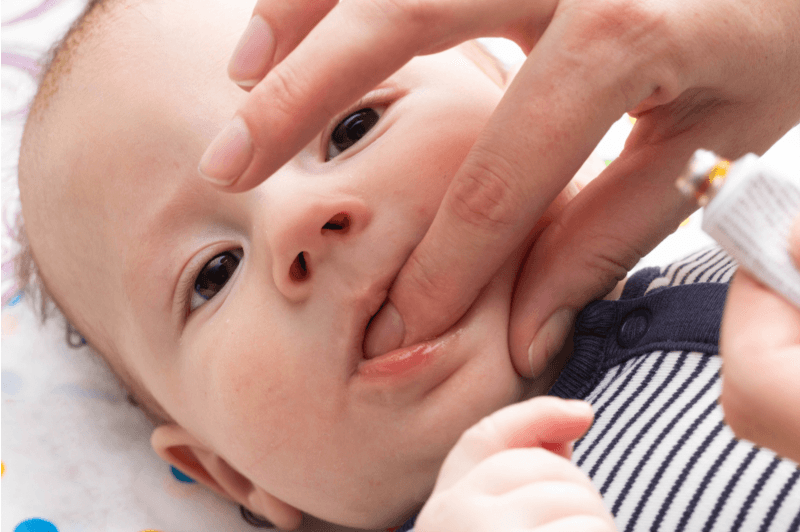Teething is an important milestone in a baby’s development, but it can be a challenging period for both the child and the parents. The emergence of the first teeth typically occurs between six months and a year of age and can be accompanied by pain and discomfort. This article explores different methods and products that can help relieve teething pain.
Teethers
Teethers are one of the most common and effective methods to relieve teething pain. They provide a safe surface for the baby to bite, which helps alleviate pressure on the gums.
• Silicone Teethers: Soft and flexible, providing gentle relief.
• Refrigerated Teethers: Can be placed in the refrigerator for a cooling relief.
• Fabric Teethers: Can be moistened and chilled for an extra cooling effect.
Gum Massage
Using a clean finger to gently massage the baby’s gums can provide relief. Ensure that your hands and nails are clean and smooth to avoid further irritating the gums.
Cold Foods
For babies who have started on solid foods, offering cold foods can help alleviate pain. Foods like chilled fruit pieces in a mesh feeder can be a safe option.
Cold Cloths
A clean, cold cloth for the baby to bite on can also offer relief. Ensure the cloth doesn’t shed fibers and is always under supervision to prevent choking risks.
Medications
In some cases, a pediatrician may recommend medications to relieve pain and inflammation. It’s crucial to follow the doctor’s instructions and never administer medications without their recommendation.
Gels and Ointments
There are specific teething gels and ointments available on the market. However, it’s important to talk to a pediatrician before using these products, as some may contain ingredients that are not safe for babies.
Avoid Hard Objects
Avoid offering the baby hard objects to bite, as they can harm the gums or pose choking hazards.
Keep the Chin Dry
Excessive drooling is common during teething. Keeping the baby’s chin dry can help prevent skin irritations.
Offer Extra Comfort
The discomfort of teething can make the baby more irritable or fussy. Offering extra comfort, such as cuddles and affection, can help soothe them.
Watch for Signs of Bigger Problems
While teething can cause discomfort, it generally does not cause high fever or diarrhea. If the baby exhibits these symptoms or if the discomfort seems extreme, it’s important to seek medical guidance.
Conclusion
Teething is a natural phase of child development, but it can bring discomfort to the baby. Using safe and effective methods to alleviate pain, such as teethers, gum massage, and cold foods, can help make this period more bearable for the child and the parents.
Disclaimer
The information presented in this article is purely informative and intended to provide general guidelines on how to alleviate teething pain. This article is not intended to replace professional guidance, diagnosis, or treatment. If you have questions or concerns about your child’s teething, it is essential to seek the guidance of a health professional. No information in this article can replace the knowledge and judgment of a health professional.
